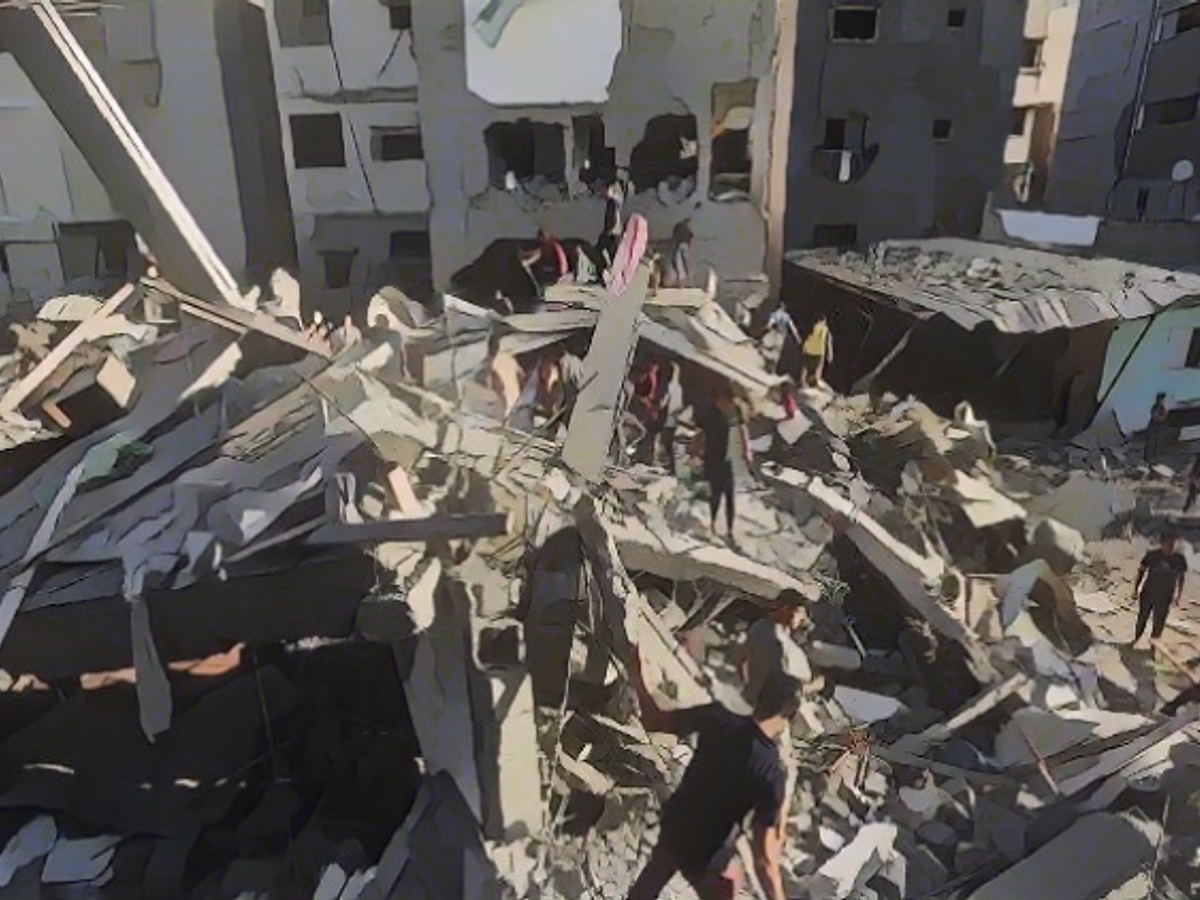Title: Over 200 Lives Lost in Gaza Amidst Israel-Hamas Violence: International Calls for Ceasefire
Recent developments in the Gaza Strip have resulted in more than 200 fatalities, according to the Hamas health ministry, following night-time attacks reported by the Israeli army. These attacks mark a significant escalation in the ongoing conflict between the two parties.
Israel's ground offensive in the Gaza Strip has been intensifying over the past few days, leading to a devastating sequence of events. On October 7, 2023, approximately 1,400 people were killed, and over 240 were taken hostage, in the Gaza Strip during Hamas's radical Islamic attacks on Israel.
Israel declared war on Hamas and subjected the Gaza Strip to constant barrages, whereas Hamas reports an alarming count of more than 9,700 casualties so far. The tragic events unfolding in the Middle East have raised deep international concerns, spurring calls for a ceasefire.
The Root of the Conflict
The continuous strife between Israel and Hamas can be attributed to various factors, including:
- Israeli Occupation and Blockade: Hamas officials believe that the attacks are a reaction to the Israeli occupation, restrictions on Palestinian movement, settler violence, and the imprisonment of thousands of Palestinians.
- Humanitarian Crisis: The prolonged blockade and occupation have exacerbated tensions and worsened the already dire humanitarian situation in Gaza.
- Al-Aqsa Escalations: Recent events at Al-Aqsa Mosque, a highly significant Islamic site, have further heightened tensions.
- Hamas's Goals: Hamas announced that its goals included creating a permanent state of war and reviving international interest in the Palestinian cause.
Achieving Peace: The International Response
Following the violence, key players have sided with a ceasefire agreement aimed at ending 15 months of fighting in Gaza. The deal, mediated by the United States, Egypt, and Qatar, includes the release of hostages, Israeli forces' withdrawal, and increased humanitarian aid.
World leaders have also expressed their opinions on the matter:
- United States: President Joe Biden and President-elect Donald Trump have praised the ceasefire agreement, with President Biden emphasizing his administration's role in negotiating it and President Trump claiming credit for the arrangement.
- Egypt: Egyptian leaders have pledged support for a just peace and the legitimate rights of the Palestinian people.
- United Nations: Secretary-General Antonio Guterres welcomed the ceasefire agreement and urged full implementation by both parties.
- European Union: European Commission President Ursula von der Leyen warmly welcomed the agreement and called for full implementation.
- Other World Leaders: Germany, the UK, Spain, and Turkey have also voiced their support for the ceasefire and called for humanitarian aid to alleviate Gaza's suffering.
Addressing Humanitarian Needs
Organizations like the World Health Organization (WHO) and the International Court of Justice have criticized Israel's attacks on Gaza's healthcare system and called for further protection of healthcare workers and infrastructure. Human rights organizations, including Amnesty International, B'Tselem, and Human Rights Watch, have condemned the Israeli occupation and urged for an end to the blockade and occupation.
As the international community grapples with the ongoing conflict, the focus remains on achieving a lasting ceasefire and addressing the pressing humanitarian needs in the Gaza Strip.








